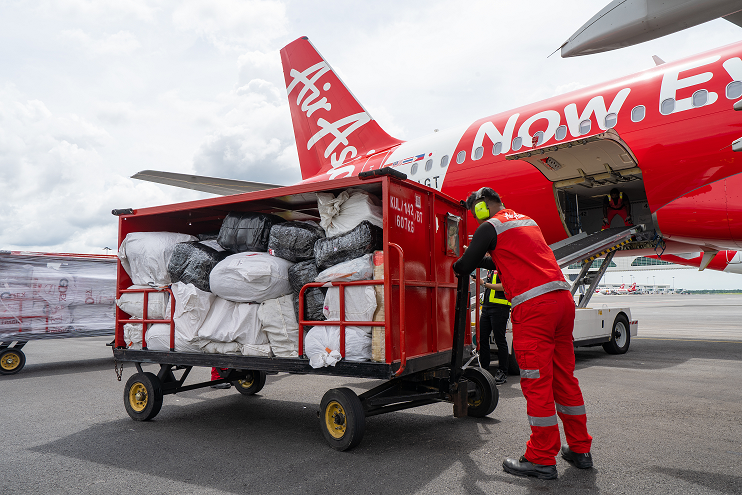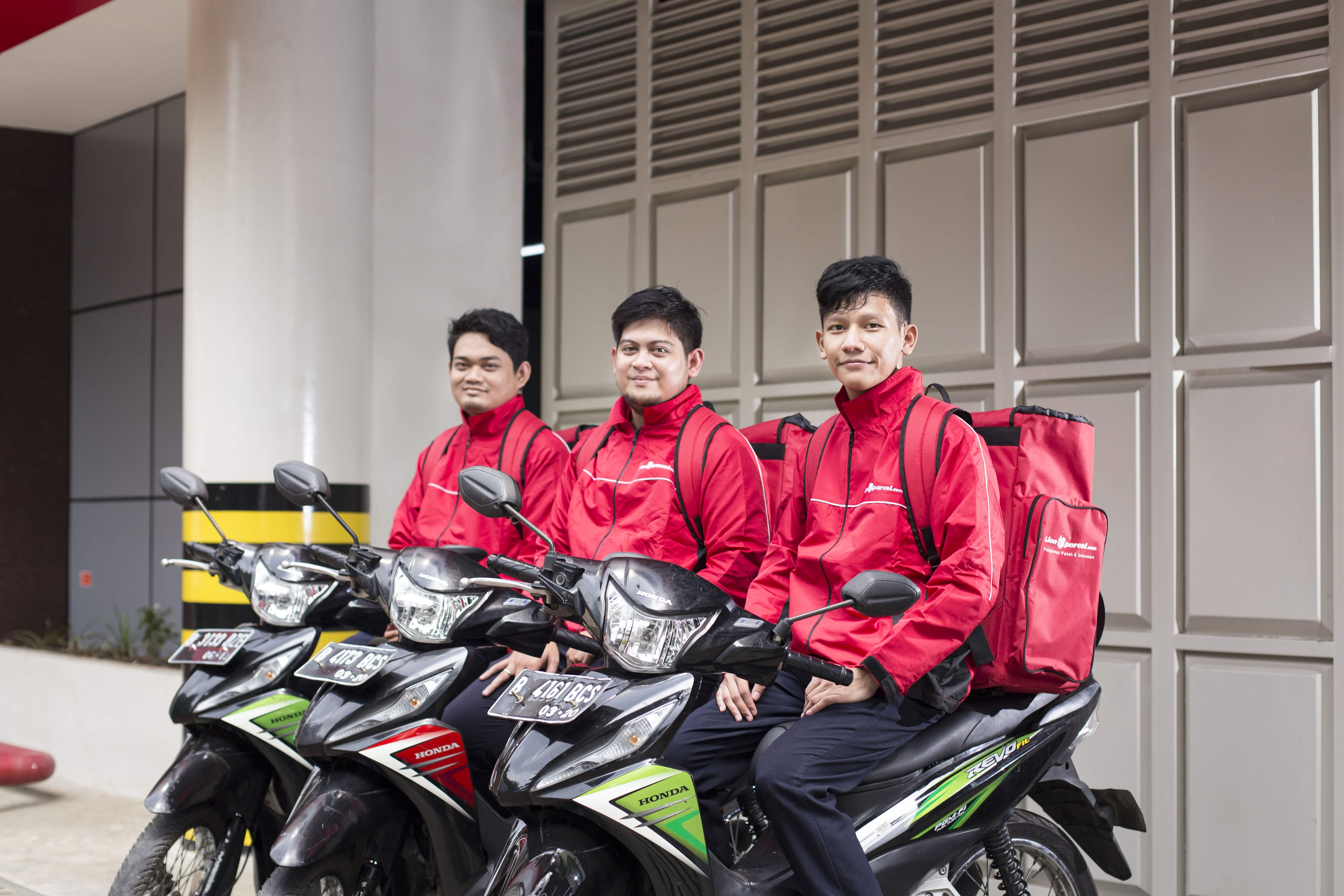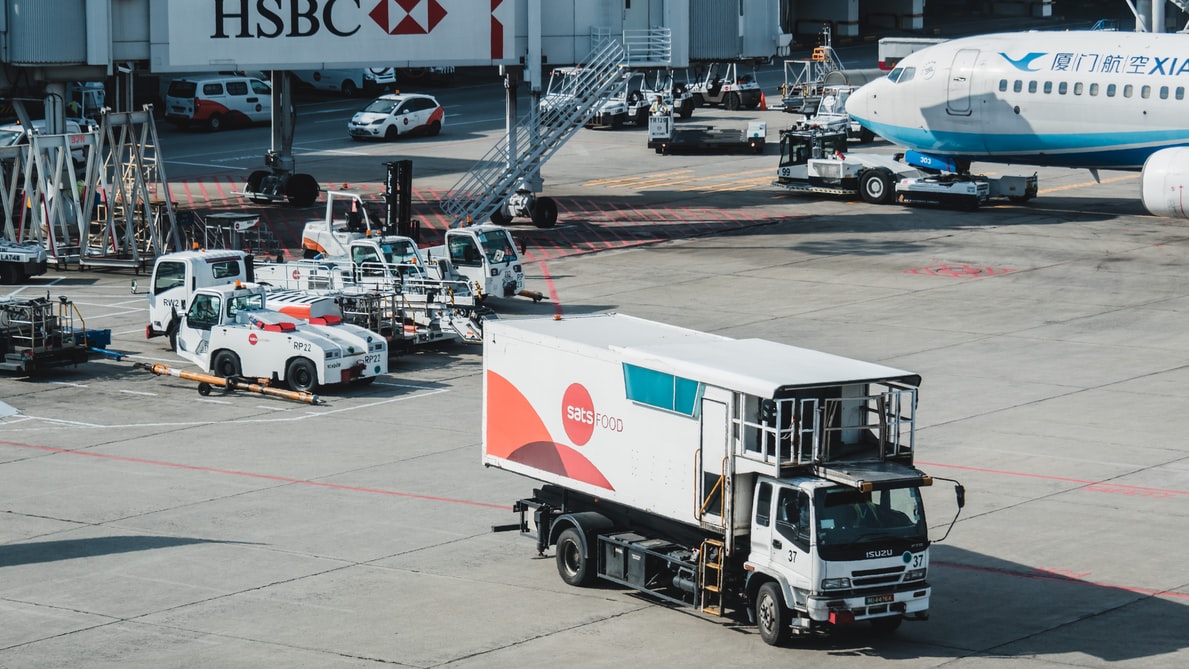Different Past, Different Now, Airline Cargo Technology Innovation
Have to compete with sea and land fleets to attract courier players. There is still a lack of technological innovation
Airline companies are now competing in the realm of cargo logistics in an effort to save themselves from the effects of the pandemic. The bright potential of the e-commerce platform business which has yet to show signs of slowing down adds to the optimism to go there.
The government has opened this new business area because the passenger occupancy has decreased drastically due to the implementation of the PSBB and the compact closure pintu incoming tourist arrivals by various countries. Eventually hundreds of planes had to be grounded (grounded) and laying off employees for efficiency.
On the other hand, playersimpromptu” benefits last mile logistics players because there are more and more fleet options they can choose for inter-island shipping. However, the technological innovations presented by local airlines are not much different from what most logistics companies offer last mile.
International Air Transport Association (IATA) together with PwC recommend airline players to create solutions that can overcome this point bread from e-commerce players. In their research, they classified the top 50 global e-commerce players based on four categories of logistics models they adhere to and the pain points of these categories.
The problem is a lack of visibility; risk of delay; dependency on third parties; border control and reverse logistics problems. This whole problem can be solved by air cargo. There are four business models that can be offered, fully dedicated business; air freight forwarder; hybrid; or Courier, Express, and Parcel (CEP).
“Our recommendation is to determine which logistics model they want to serve and work to improve pain points together, using an end-to-end transportation network approach. Connecting parties through data sharing will, in turn, optimize their processes.”
This technological innovation has an important role in supporting the ecosystem. Have the same objective, but different implementation while still focusing on the passenger transportation business. For example, using applications with various features to make it easier to book flights or order food in-flight with various payment methods.
Taking the cargo business seriously
AirAsia Indonesia President Director Veranita Yosephine Sinaga explained that the cargo business is now one of the main businesses in charter services that contributes the most to the group's business. Its growth is claimed to have increased during the pandemic. Unfortunately, he did not include more detailed figures.
For the record, AirAsia has been running its cargo business under a separate entity called Teleport since 2018. Under this entity, AirAsia positions itself as air cargo service provider for the domestic retail cargo market, it serves the needs of sending goods and commodities in relatively small quantities to various cities in Indonesia and Asia Pacific.
The delivery uses AirAsia assets consisting of passenger aircraft (passenger charter) and cargo planes (cargo charter). The Airbus A320-200 type can be operated in two configurations, specifically for cargo, the capacity is 17 tons, while for passenger flights, the available cargo space is around 5-6 tons.
"In the current period of economic recovery, the cargo business has become vital to boosting the economy. Through Teleport Indonesia"We will soon expand in Indonesia by not only focusing on serving delivery companies, but also e-commerce businesses which are in very high demand in Indonesia," he explained to DailySocial.
Garuda Indonesia has different conditions. This state-owned company is relatively new to the logistics industry. Currently only Citilink has a cargo aircraft unit (Freight), while Garuda has not.
Garuda Indonesia President Director Irfaniaputra said that so far the company has been too busy on the passenger side. In fact, inside the fuselage, it consists of more or less 50% of the upper part [passengers] and 50% of the lower part [cargo].
Previously, under normal conditions, Garuda Indonesia's passenger transportation business accounted for 80% of the total business. Now passenger business has dropped by 90%. The cargo and charter business is projected to contribute between 40%-60%.
"We are very busy taking care of the top part, which is of course important, but we forget the bottom part," said Irfan, quoted from Republika.
He continued, “The cheapest and fastest mode of transportation for sending goods is airplanes. Therefore, now we are very focused on discussions about cargo, and it seems that all airlines are thinking the same thing.”
To optimize this, through its subsidiary Aerojasa Cargo, the company released Just send it which is a service door to door cargo application-based serviced by Garuda Indonesia and Citilink fleets.
SendAja uses a community-based business concept, opening up opportunities for people to become agents for SendAja friends. As agents, they are tasked with receiving packages from the sender before forwarding them to the courier.
This courier is tasked with picking up the package to the location pick up and drop points and deliver it to the final recipient. In the application, senders can track delivery status directly real-time.
Lion Air Strategy
Lion Air Group's business situation is not much different from other airlines in general. However, they were helped by the performance of their subsidiary which operates in the logistics sector, Lion Parcel, which was started in 2013. Lion Parcel acts as a logistics company last mile, fighting with similar players in Indonesia.
Lion Parcel CEO Farian Kirana claims that the company's performance continued to grow exponentially until the pandemic took place. Entering the beginning of this year, delivery of packages and documents jumped to 90-100 tons per day. Even during the implementation of the PSBB, Lion Parcel recorded a growth in the number of packages of 17%.
During this period, the items frequently sent were clothing, masks and medical equipment. The cities of origin with the most shipments came from Jakarta, Medan and Tangerang; Meanwhile, the delivery destination cities are Jakarta, Makassar and Medan. Unfortunately, he was reluctant to reveal Lion Parcel's contribution to the group's business.
"We have also collaborated closely with various e-commerce [players] in Indonesia such as Tokopedia and Bukalapak, so that our deliveries can serve sellers and customers who transact on e-commerce [platforms]," explained Farian.
Because Lion Parcel is a subsidiary of the Lion Air Group, they can use aircraft assets as an air delivery fleet. He said, Lion Air has 283 aircraft and ground connectivity managed by company partners spread across 188 cities. This includes 1.000 Point of Sales (POS) virtual courier partners and 7.000 POS.
The latest innovation that the company has developed by utilizing group assets is Onepack, a service next day delivery with success rate reaches 95%. This service utilizes the Lion Air Group's flight network from west to east, including pioneer routes operated by Wings Air with more definite flight schedules.
"In the initial stage, consumers can enjoy this service for sending goods from Jakarta to 28 cities from 18 cities to Jakarta. "The re-launch of this product is our answer to provide the best services and solutions that suit the conditions during the current pandemic."
The technological developments presented by Lion Parcel are applications equipped with features pick up request, drop off, live tracking, and check rates. From features pick up request, consumers don't need to leave the house because the courier will come to the buyer's location to pick up the package.
“We run partnerships with models low asset model so that it is more flexible, making it easier to increase business scalability, such as increasing the number of couriers, POS partners, and opening new destinations managed by consolidators. This model can create new opportunities sharing economy," concluded Farian.
Global aviation trends
The steps taken by the airlines above reflect global conditions. Quoting the report The Load Star, the passenger transportation business fell by 74% year-on-year in April 2020. In the United States alone, in the same month, this business fell by 94%.
British airline Virgin Atlantic, for example, increased its cargo flights by more than a third to 600 during June, higher than the previous month. Then the Finnish airline, Finnair, increased its cargo capacity by removing economy class seats from the cabin on its two Airbus A330 units. Other major airlines also do the same thing, such as British Airways, Lufthansa, Emirates and United.
The impact of the airline's pivot is the need to modernize cargo with the latest IT systems. American Airlines It said it suspended most of its IT projects during the pandemic, except for its reorganized cargo division. The IT system in the division was modernized to the maximum to reduce obstacles. Initially requiring 100 digital documents, now only 10.
AirAsia is also digitizing air cargo network blockchain-based, so-called Freightchain. The service offers a digital network to confirm and track air cargo transparently based on distributed ledger blockchain technology.
Shippers can find all available cargo network connections that an airline has. This is done by providing transparency regarding how their cargo moves from point A to point B. This system will also facilitate ordering on demand real-time using a bidding process that is then validated on the blockchain.
Freightchain can simplify the ordering process to confirmation 10 times faster than traditional methods. Before being unveiled to the public last April, Freightchain had been tested for sending cargo containing medicines from India to Mongolia.
This system books instant itineraries via Kuala Lumpur, Malaysia, and Seoul, South Korea, instantly real-time through flights with three different carriers using smart contracts on the blockchain.
Due to unavailability of direct flights from Bengaluru to Ulaanbaatar, senders have to manually find the availability of all connecting flights and contact multiple agents to finalize the linkage across multiple airlines.
With Freightchain, all connection, contact and contract data is on the blockchain, making it easy to identify links, book flights and confirm travel plans.
Even though airline players are in decline, on the other hand, demand for cargo planes remains, especially coming from giant e-commerce companies. Quote The STAT Trade Times, Amazon's air cargo line, Amazon Air, revealed that it will lease an additional 12 Boeing 767-300 aircraft which will be converted into cargo planes to handle the increase in transaction demand. Amazon Air will have 80 aircraft in total.
Alibaba's logistics unit, Cainiao Smart Logistics Network, announced plans to double the number of cargo planes, from 260 to 1.260 in the coming months. The delivery time will be much faster to three to five days for international deliveries, from the previous seven to 10 days.
Challenges in the industry
Logistics observer and CEO of PowerCommerce.Asia Hadi Kuncoro said that the shift in the business model above occurred due to changes in consumer behavior driven by developments in digital technology. This condition has shifted the trade business area towards trade direct-to-consumer (e-commerce).
"So it is very natural that industry players see this as an opportunity which results in airline players expanding their business into the downstream realm as providers last mile," said Hadi.
However, the increase in players will certainly increase the pressure of high competition among industry players. However, in terms of opportunity capacity, Indonesia is very large so it is still very reasonable.
"Consumers will increasingly be given benefits by having more choices and competitive prices. What must be maintained is that actors who control from upstream to downstream, such as airlines, must be monitored by the government in terms of monopolistic control in the e-logistics business."
He continued, currently toll road infrastructure is developing rapidly, connecting Java and Sumatra. Therefore, the shift to e-logistics is now very optimal in land distribution via toll roads for big cities on the two islands.
"The biggest opportunity for air cargo from these airlines is to focus on distribution to destinations outside Java. In the long term, the government and aviation industry players should start thinking about connecting ASEAN countries."
He continued, "The ASEAN connection will open up opportunities. Not only using commercial passenger aircraft facilities, but also operating cargo aircraft (cargo freighter) to several fat destinations outside Java and ASEAN countries."
Supporting Hadi's statement, General Chair of the Indonesian Logistics Association (ALI) Zaldy Ilham Masita explained, in general logistics player not yet making shipping by air the main choice. The main consideration is the price, which is significantly different compared to the sea fleet.
"Cargo shipments by air for shipments outside Java are still very small compared to sea. "[The range] is only 7%-10% of sea cargo because the price of air cargo is very different," he said.
Meanwhile, deliveries between cities within Java tend to use land routes rather than air since the presence of the Trans Java toll road. Moreover, during this pandemic there are not many air routes available.
“Even though for express logistics player, air cargo is the main choice because it is needed quickly. "But for delivery purposes within Java, we have started to switch to land during this pandemic."
Even so, he deserves appreciation for the number of airlines entering the cargo business. Air cargo costs can compete with each other to provide the best prices. For industry, dependence on air cargo is very high, especially when it comes to shipping to cities outside Java where the most efficient option is only by air.
From Zaldy's observations, during this pandemic the shipping prices offered by airlines were relatively the same as air cargo [cargo planes]. Please note, there are several routes that go down but the decline is not much.
"We hope that with more airlines providing air cargo, prices should drop even further."
According to him, if airline companies can focus on air cargo services with the best service and competitive prices, this will help the ecosystem as a whole. Don't let airlines end up being tempted to become logistics courier companies because that's not their main business.
Zaldy also served Paxel COO said, specifically Paxel itself has become a loyal user of cargo planes to provide delivery services same days. However, due to the pandemic, this service finally had to be changed to next day.
“Until now, Paxel is still using it air cargo for [delivery] outside Java, but service same days not yet possible because the plane schedule is still uncertain [due to the pandemic]. So it can't be done same days, so next day, " he concluded.
Sign up for our
newsletter
 Premium
Premium



